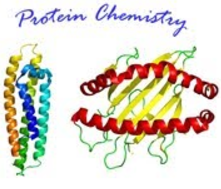Description
The protein chemistry group focuses its efforts on the investigation of the role of protein biomolecules and their disease-causing variants (such as rare mutations or single nucleotide polymorphisms) in the pathogenesis, predisposition and diagnosis of human diseases in an effort to evaluate or discover novel protein-based biomarkers. A major aim of the group is to validate and complement existing genetic or clinical association studies by providing mechanistical insights (on a functional or structural level) that can establish the diagnostic and prognostic value of protein biomarkers for human diseases. We are also involved in rational-drug design efforts focused on the protein molecules we are currently investigating. We guide and support these efforts by providing structural and mechanistic insight as well as developing and performing customised in vitro and cell-based assays.
Analysis of the biological pathway of antigen presentation at the molecular level. Antigen presentation is a biological function that allows the human immune system to discern which cells are infected or cancerous and exterminate them. We are investigating molecular components of this pathway and focusing on antigen processing enzymes. The basic goals of our efforts revolve around:
- Understanding how polymorphic variation in the antigen presentation pathway affect disease predisposition
- Investigating how the global immunopeptidome analysis can be used as a prognostic and diagnostic tool
- Regulating the pathway of antigen presentation for therapeutic goals such as cancer immunotherapy or the control of autoimmunity






